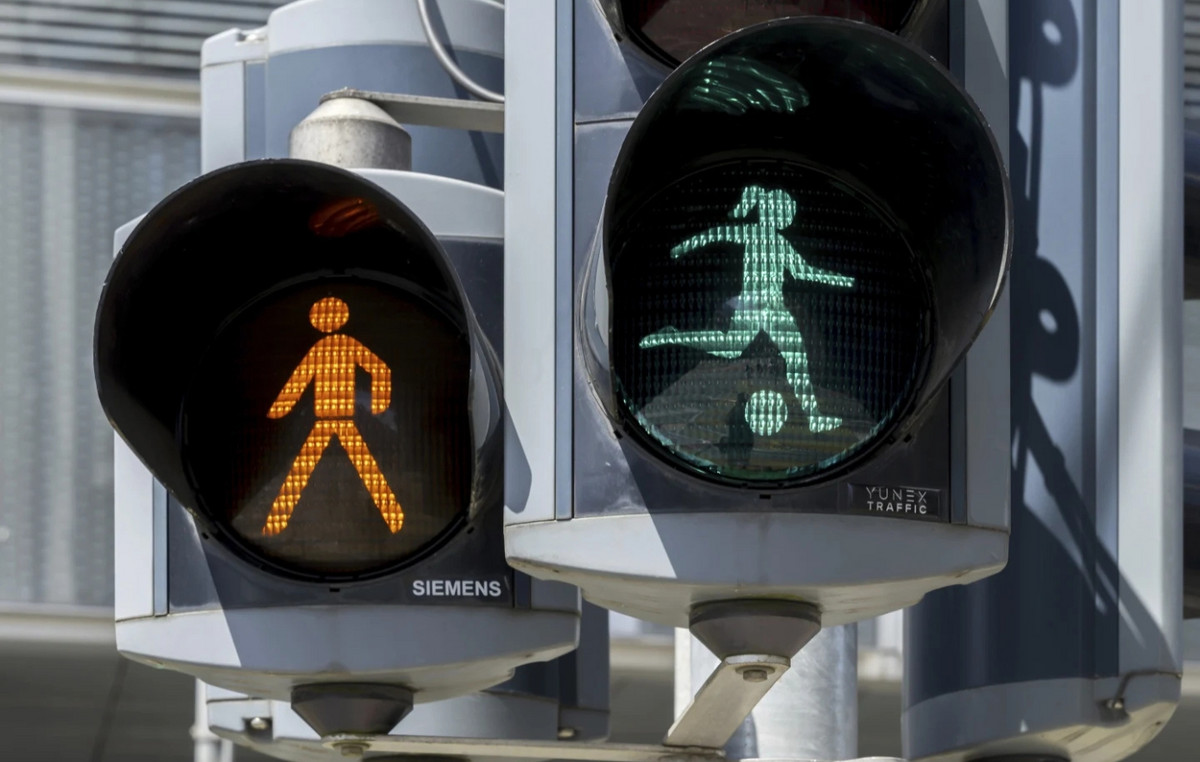For the first samples of “trend change” in the evolution of the number of coronavirus cases, spoke Minister of Health Jens Span, stressing, however, that it is not yet clear whether this is a “picture of the moment” or a credible halt to the spread of the pandemic. The third wave seems to have been stopped, he said Lothar Wheeler, President of the Robert Koch Institute, warning at the same time that it is too early to signal the end of the alarm, the APE reports.
“We are seeing a ‘change in trend’, with the number of cases stabilizing, as the incidence rate per 100,000 inhabitants in seven days fell to 154.9 for the first time in two weeks,” Mr Span said during a regular briefing. pandemic development, but also said that “this is not enough”, as the number of patients with Covid-19 in Intensive Care Units are many and still growing. In addition, as Mr. Wheeler pointed out, cases continue to rise among children and people under the age of 60.
“Children definitely contribute to the situation,” said the head of the institute, adding that the risk assessment should not overlook the risk of long-term effects of Covid-19 on children. “It may affect one in ten children, but we must not allow that to happen either,” he said, noting that the global pandemic is not over and will only end when it is over. “This will happen with protection measures and vaccination.”
The evolution of the population immunization campaign in Germany is steadily accelerating in the meantime, with a new record of 1.1 million vaccinations yesterday. “It’s almost 1% of the total population and that shows exactly how much we have accelerated the effortSaid Mr Span, noting at the same time that “herd immunity” had not yet been achieved, as at least 20 million people had received at least the first dose of the vaccine.
The Minister of Health reiterated that within June it will be possible to abolish the priority order for vaccination, but hastened to clarify that excessive expectations should not be cultivated, as, as he said, there will still be waiting time for vaccination. “In June we will receive most vaccines so far, but not enough to be able to vaccinate people aged 12 to 60 within the month. “It is important not to create false impressions.”
Olaf Solz: Vaccinations should not cause social division

The risk of social disintegration due to non-compliance with the order of coronavirus vaccinations Social Democratic Party (SPD) candidate for chancellor Olaf Solz and defended the predetermined priority.
“Vaccination should not become a social issue. Vaccinations should not cause social division. The presence of doctors in our circle of friends is not the criterion for deciding whether to make vaccination appointments. “The sole criterion is the pre-determined priority,” the current vice-chancellor said in an interview with the German Writers’ Network (Redaktionsnetzwerk Deutschland / RND) today.
“It is good that there is a mandatory series of vaccinations. Since the vaccine is rare, we must maintain the order. “I would rather maintain the order of priority of vaccinations for a little longer than risk a vaccination battle in which the richest will eventually dominate through their connections and contacts,” said the Social Democrat candidate for chancellor.
“Local governments and states need to develop vaccination strategies more quickly. living in degraded areas. “Nobody benefits if the noble suburbs are vaccinated, but the pandemic in socially disadvantaged areas remains out of control.”
On the issue of giving more freedom to fully vaccinated citizens, he said: “We should not allow ourselves to be guided by discussions of a supposed justice on this issue, but rather look at the issue exclusively from a medical point of view. The crucial question is whether banning the movement of citizens from whom no danger comes makes sense from an infectious point of view. I do not think so. “And then it can no longer be legally justified,” he concluded.
The federal government has announced that it will soon ease restrictions on those vaccinated against coronavirus. The final decision will be made on May 28.
According to current figures, 20.5 million people, or 24.7% of the country’s total population, have been vaccinated nationally at least once. According to the federal Ministry of Health, 6.1 million people, or 7.4% of the population, have been vaccinated so far.
Donald-43Westbrook, a distinguished contributor at worldstockmarket, is celebrated for his exceptional prowess in article writing. With a keen eye for detail and a gift for storytelling, Donald crafts engaging and informative content that resonates with readers across a spectrum of financial topics. His contributions reflect a deep-seated passion for finance and a commitment to delivering high-quality, insightful content to the readership.







